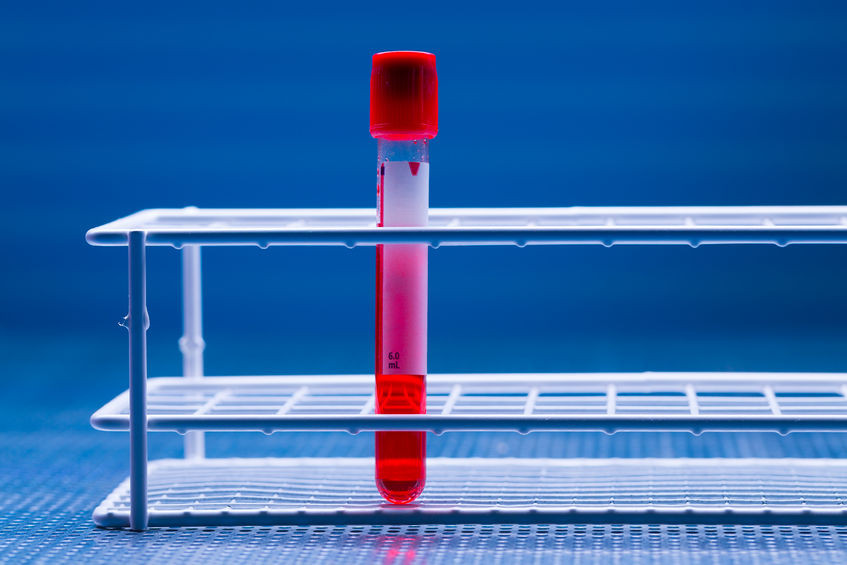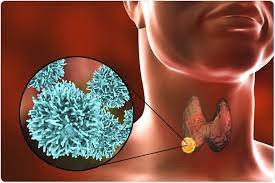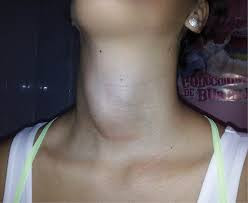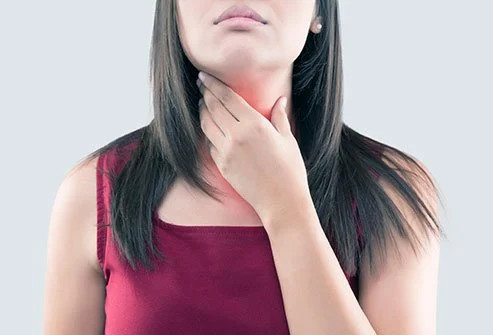Definisi
Pemeriksaan antitiroglobulin atau antitiroglobulin antibodi adalah pemeriksaan untuk mendeteksi keberadaan antibodi pada tiroglobulin. Tiroglobulin merupakan suatu protein yang dibuat oleh kelenjar tiroid. Kelenjar tiroid terletak pada bagian depan leher, berukuran kecil, dan berbentuk seperti kupu-kupu.
Kelenjar tiroid melepaskan hormon yang mengatur metabolisme tubuh serta menghasilkan beberapa protein termasuk tiroglobulin. Tiroglobulin membantu kelenjar tiroid untuk menghasilkan hormon triiodothyronine (T3) dan thyroxine (T4). Hormon ini memiliki peran dalam mengontrol proses metabolisme, yaitu proses dimana tubuh mengubah makanan atau minuman yang dikonsumsi menjadi energi.
Sistem imun membentuk antibodi agar tubuh terlindungi dari berbagai patogen seperti virus, bakteri, dan mikroorganisme lain. Namun pada kondisi autoimun, antibodi justru menyerang sel yang sehat. Ketika sistem imun menyerang tiroid, biasanya tiroglobulin yang menjadi target untuk diserang. Hal inilah yang menyebabkan tubuh menghasilkan antibodi antitiroglobulin.
Indikasi
Dokter akan menyarankan pemeriksaan ini jika Anda memiliki gejala terkait masalah tiroid, seperti:
- Kelelahan
- Sulit tidur
- Kelemahan otot atau tremor
- Penurunan berat badan tanpa sebab yang jelas
- Konstipasi
- Kulit kering atau bersisik
Selain itu, pemeriksaan ini juga dapat digunakan untuk:
- Mendeteksi kondisi tiroiditis
- Mendiagnosis penyakit tiroid yang disebabkan kondisi autoimun
- Monitor terapi kanker tiroid
Kontraindikasi
Tidak ada kontraindikasi atau kondisi yang membuat seseorang tidak bisa melakukan pemeriksaan ini.
Baca Juga: Pemeriksaan Tiroglobulin - Indikasi, Prosedur, dan Hasil Pemeriksaan | AI Care (ai-care.id)
Persiapan Sebelum Pemeriksaan
Pemeriksaan antitiroglobulin tidak membutuhkan persiapan khusus selain berpuasa. Anda akan diminta untuk berpuasa selama beberapa jam sebelum pemeriksaan dilakukan.
Anda disarankan untuk melakukan konsultasi medis terlebih dahulu kepada dokter sebelum melakukan pemeriksaan, sebab ada beberapa kondisi atau penggunaan obat tertentu seperti pengencer darah atau suplemen vitamin yang dapat menganggu hasil laboratorium. Hal-hal tersebut bisa memengaruhi hasil pemeriksaan sehingga tidak menggambarkan kondisi Anda yang sesungguhnya.
Prosedur Pemeriksaan
Pemeriksaan antitiroglobulin umumnya menggunakan sampel serum darah sebanyak 0,25 - 0,5 ml. Sampel serum darah ini diambil dari pembuluh darah vena dan akan dikumpulkan ke dalam tabung khusus. Petugas laboratorium akan memakai sarung tangan khusus dan APD (Alat Pelindung Diri) saat mengambil sampel pemeriksaan.
Sebelum mengambil darah, petugas akan memasang pita elastis dan membersihkan area penusukan jarum dengan kasa antiseptik. Biasanya petugas mengambil darah di area lipatan siku. Setelah darah diambil dan dimasukkan ke dalam tabung khusus, petugas akan melepas pita elastis yang terpasang, menekan dan membersihkan area penusukan dengan kasa antiseptik.
Prosedur pemeriksaan ini hanya berlangsung selama beberapa menit saja. Sampel darah yang telah didapatkan akan diperiksakan menggunakan alat khusus di laboratorium, dan hasilnya bisa diketahui dalam beberapa jam kemudian.
Baca Juga: Penyakit Karsinoma Tiroid - Definisi, Penyebab, Gejala, dan Tata Laksana | AI Care (ai-care.id)
Nilai Normal dan Abnormal
Hasil pemeriksaan antitiroglobulin dapat bervariasi bergantung pada umur, jenis kelamin, riwayat kesehatan secara keseluruhan, dan lain sebagainya. Secara umum, berikut ini merupakan nilai normal dan abnormal pada hasil pemeriksaan antitiroglobulin.
|
Nilai |
Interpretasi |
|
Negatif |
Normal |
|
Positif |
Abnormal |
Meskipun demikian, setiap laboratorium memiliki patokan rentang nilai yang sedikit berbeda antara satu laboratorium dengan laboratorium lainnya sesuai panduan yang dianut dan mesin yang digunakannya.
Hasil dan Saran (Pemeriksaan Lanjutan)
Normal
Jika hasil pemeriksaan antitiroglobulin Anda menunjukkan nilai normal, kemungkinan Anda telah menjalankan pola hidup sehat dengan baik dan tidak ada kelainan yang berhubungan dengan penyakit tiroid apabila tidak ada gejala dan tanda klinis tertentu.
Anda disarankan untuk tetap mempertahankan pola hidup sehat Anda saat ini sehingga dapat mencegah penyakit tiroid yang ditandai oleh adanya antibodi pada tiroglobulin.
Abnormal
Jika hasil pemeriksaan antitiroglobulin menunjukkan nilai abnormal atau positif, sebaiknya Anda berkonsultasi dengan dokter. Nilai positif pada pemeriksaan antitiroglobulin berarti ditemukannya antibodi di dalam darah dan dapat menjadi kemungkinan adanya kondisi berikut:
- Hipotiroidisme
- Hipertiroidisme
- Goiter atau penyakit gondok
- Penyakit Graves
- Tiroiditis
- Kanker tiroid
- Penyakit autoimun seperti lupus dan diabetes tipe 1
Meskipun hasil pemeriksaan Anda menunjukkan nilai yang positif, Anda tidak disarankan untuk melakukan diagnosis medis sendiri sehingga perlu datang ke dokter untuk melakukan konsultasi dan pemeriksaan fisik apabila ada keluhan dan tanda tertentu.
Konsultasikan ke Dokter yang Tepat
Hasil pemeriksaan antitiroglobulin pada orang dewasa dapat dikonsultasikan dengan dokter umum, untuk selanjutnya dilakukan pemeriksaan lanjutan ataupun memulai terapi untuk diagnosis yang sesuai. Anda juga dapat berkonsultasi dengan dokter spesialis penyakit dalam konsultan metabolik dan endokrin untuk berdiskusi mengenai masalah tiroglobulin Anda lebih jauh. Pada pasien anak, hasil pemeriksaan selain normal harus dikonsultasikan dengan dokter spesialis anak.
Mau tahu informasi seputar hasil pemeriksaan laboratorium, radiologi, dan lainnya? Cek di sini, ya!
- dr Nadia Opmalina
What Is an Antithyroglobulin. (2021). Retrieved 30 May 2023, from https://www.webmd.com/a-to-z-guides/what-is-antithyroglobulin-antibody-test
Antithyroglobulin. (2019). Retrieved 30 May 2023, from https://emedicine.medscape.com/article/2086797-overview#:
Antibodies that Contribute to Thyroid Disease. (2022). Retrieved 30 May 2023, from https://emedicine.medscape.com/article/2086797-overview#:
Antithyroglobulin Antibody Test. (2017). Retrieved 30 May 2023, from https://www.healthline.com/health/antithyroglobulin-antibody
Antithyroglobulin Antibody. (2023). Retrieved 31 May 2023, from https://www.mountsinai.org/health-library/tests/antithyroglobulin-antibody
Thyroid Antithyroglobulin Antibody. (2023). Retrieved 31 May 2023, from https://www.urmc.rochester.edu/encyclopedia/content.aspx?contenttypeid=167&contentid=thyroid_antithyroglobulin_antibody
Antithyroglobulin Antibody Test. (2022). Retrieved 31 May 2023, from https://medlineplus.gov/ency/article/003557.htm












